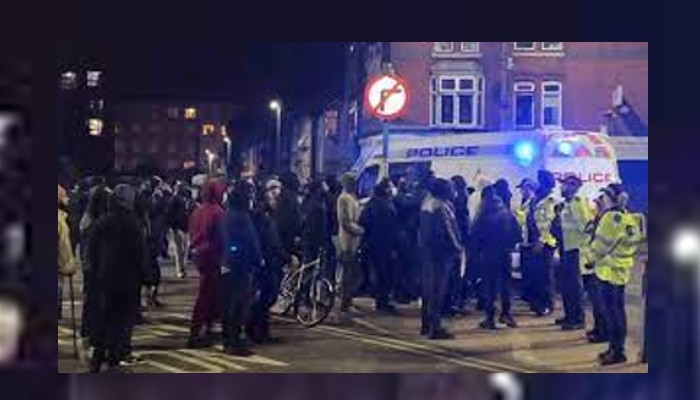In a recent article, German broadcaster Deutsche Welle held India’s domestic politics and social media responsible for recent communal violence in the UK’s Leicester
Claim:
DW said the violence between the South Asian diaspora at a magnitude never seen before in Leicester has put a spotlight on how India’s hotly divided political tensions are exported by social media and inflammatory rhetoric.
Counterclaim:
The German public broadcaster is unnecessarily linking the shameful incidents of clashes among members of South Asian diaspora in the UK’s Leicester last month with India which is home to nearly 140 billion people with diverse culture, faith, and religion—all living together peacefully for centuries.
Instead of blaming this or that community, the German news outlet should see the remarks of Leicester’s temporary Chief Constable Rob Nixon as he warned against making “broad, sweeping comments” about the unrest which took place on September 17 and involved mainly young men of the South Asian region.
“Actually, what we know is that this isn’t representative of all the Hindus, it isn’t representative of all the Muslims. In fact, it’s a small collection of individuals who are connected with (those faiths), but not exclusively…because(some) people that have come to our attention have been linked with the Christian faith,” Rob Nixon was quoted by BBC News as saying.
Meaning is clear: the Leicester incident was not just about clashes between Hindus or Muslims, but more than that and for this, the role of social media has to be probed. But unfortunately, DW chose to hammer at India without any rhyme or reason.
Claim:
DW said the unrest on the streets of Leicester coincides with long simmering conflict in India between Hindus and Muslims, which has been exacerbated in recent years as the ruling BJP government pursues policies critics say marginalize the Muslim minority.
Counterclaim:
If the German broadcaster’s claim is to be accepted then the 2021 Pew Research Centre study which said most Indians valued religious tolerance, has no meaning vis-à-vis Western media’s projection about India and its interests.
This study was carried out by the Pew Research Centre almost seven years into the BJP’s rule in India and it found that 85 per cent Indians believed that respecting all religions was very important “to being truly Indian.” For most Hindus, religious tolerance was not just a civic virtue but also a religious value, with 80 per cent of them stating that respecting other religions was an integral aspect of “being Hindus,” said the study by the US-based nonpartisan think tank.
Significantly, 89 per cent Muslims and Christian said they felt free to practice their religion in India. Had Muslims felt marginalised or Christians found themselves under any attack--direct or indirect, such a large number of non-Hindus wouldn’t have come forward to speak up about their feelings of being safe in India.
After all, as J S Rajput, the former director of NCERT wrote in his column in The Indian Express: “India is the beloved home for practitioners of all major religions in the world. Indian culture accepts diversity of faiths and beliefs. Religious harmony and social cohesion are two core elements for progress and development.”











 Contact Us
Contact Us
 Subscribe
Subscribe
 News Letter
News Letter
 Instagram
Instagram Youtube
Youtube